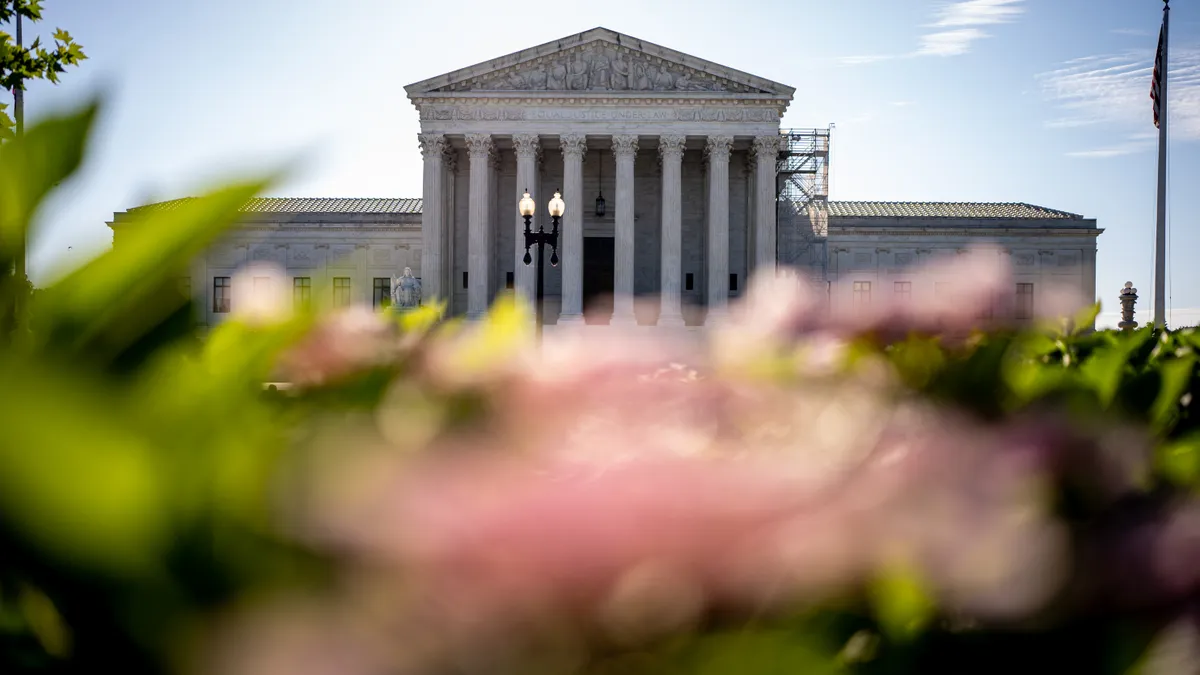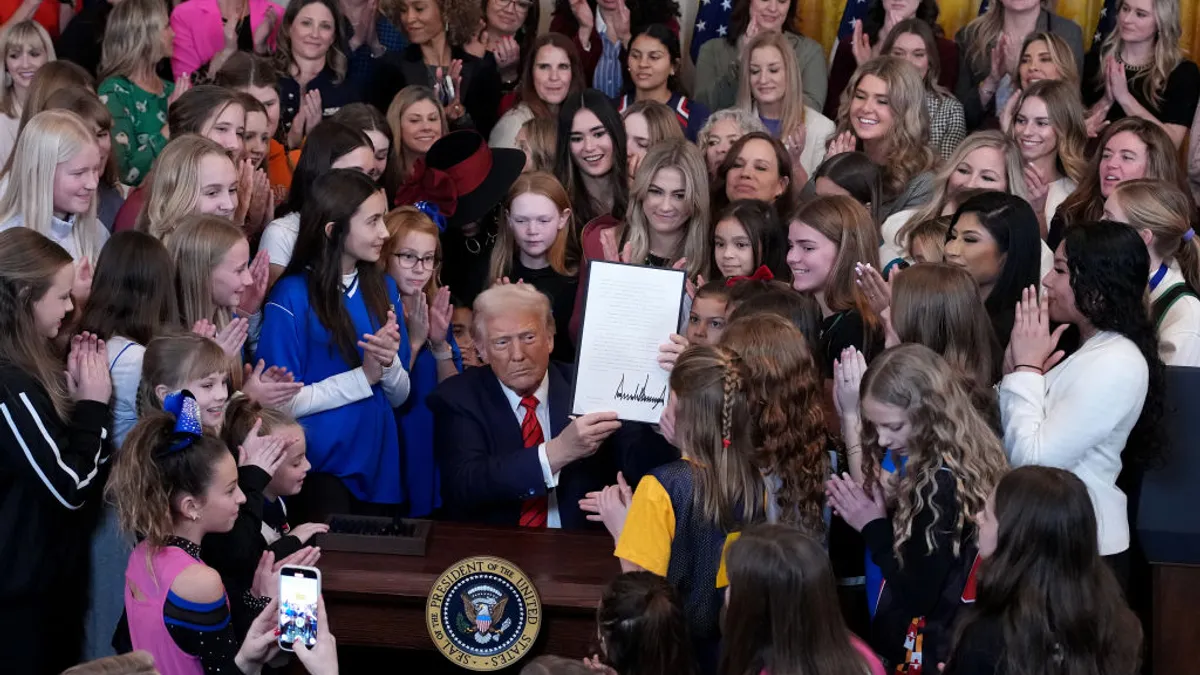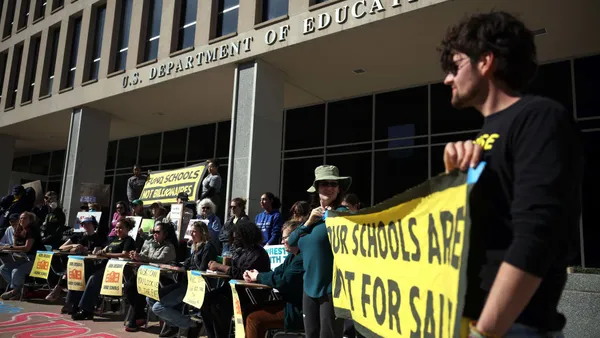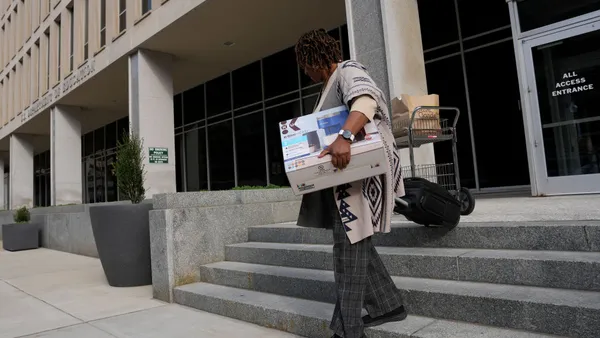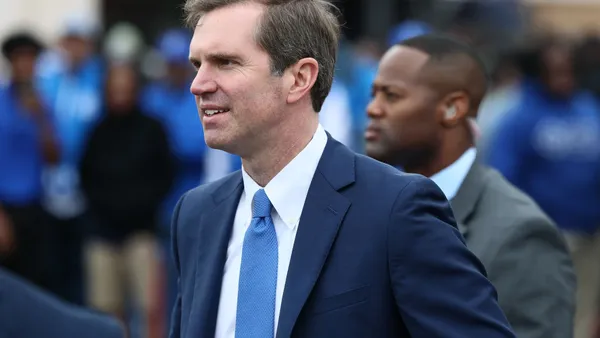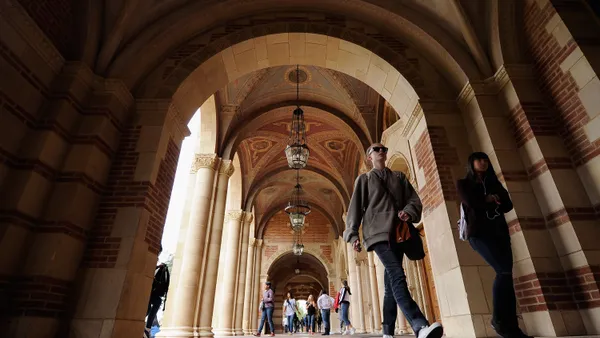Dive Brief:
- The U.S. Supreme Court overturned the Chevron doctrine on Friday in Loper Bright Enterprises et. al. v. Raimondo, Secretary of Commerce, et. al., in a blow to federal agencies.
- In a 6-3 vote, the high court overruled a 1984 decision in Chevron v. Natural Resources Defense Council that established the doctrine, which required federal courts to give deference to agencies’ reasonable interpretation of ambiguous statutes.
- Higher education and legal experts have predicted that the overturning of the Chevron doctrine could hamper the U.S. Department of Education's ability to write and enforce regulations.
Dive Insight:
The decision to nix Chevron could have massive implications for law enforcement by regulatory entities such as the Education Department.
“The Administrative Procedure Act requires courts to exercise their independent judgment in deciding whether an agency has acted within its statutory authority, and courts may not defer to an agency interpretation of the law simply because a statute is ambiguous,” the high court ruled.
Federal agencies will “likely face more challenges to their rules and regulations” and “the agencies might publish fewer and more modest regulations going forward,” labor and employment firm Littler explained in a blog post earlier this year.
The Center for American Progress, a liberal think tank, predicted in January that overturning the Chevron doctrine would put several higher education regulations at stake.
That includes the gainful employment rule, which requires career education programs to prove their students earn enough to pay back their student loans and that at least half of them make more than high school graduates who didn’t attend college. The rule, which has been challenged in court, takes effect July 1.
Also at risk, according to CAP, is the borrower defense to repayment rule, which provides debt relief to students who have been defrauded by their colleges. A federal judge has already temporarily blocked the Biden administration’s version of the rule.
The Biden administration also recently released draft regulations that would provide debt relief to certain student groups, such as those facing ballooning interest or who entered repayment two decades ago.
“Because the future of student debt relief hinges on federal regulations and agency action, overturning Chevron deference could provide another avenue to challenge these rules and put the possibility for any future student debt relief measures at risk,” CAP said in January.
Jason Altmire, president of Career Education Colleges and Universities, which represents for-profit colleges, praised the ruling in a Friday statement.
“No agency has overreached more in exceeding congressional authority than the current U.S. Department of Education,” Altmire said. “We are pleased that the Supreme Court has, once and for all, restrained the ability of the ideologically driven bureaucrats in the Department to craft regulations based upon their own whims and biases, rather [than] what Congress had intended.”
In a dissenting opinion, Justice Elena Kagan said the Chevron decision has “served as a cornerstone of administrative law” for 40 years.
“Congress knows that it does not — in fact cannot — write perfectly complete regulatory statutes. It knows that those statutes will inevitably contain ambiguities that some other actor will have to resolve, and gaps that some other actor will have to fill. And it would usually prefer that actor to be the responsible agency, not a court,” Kagan wrote.


